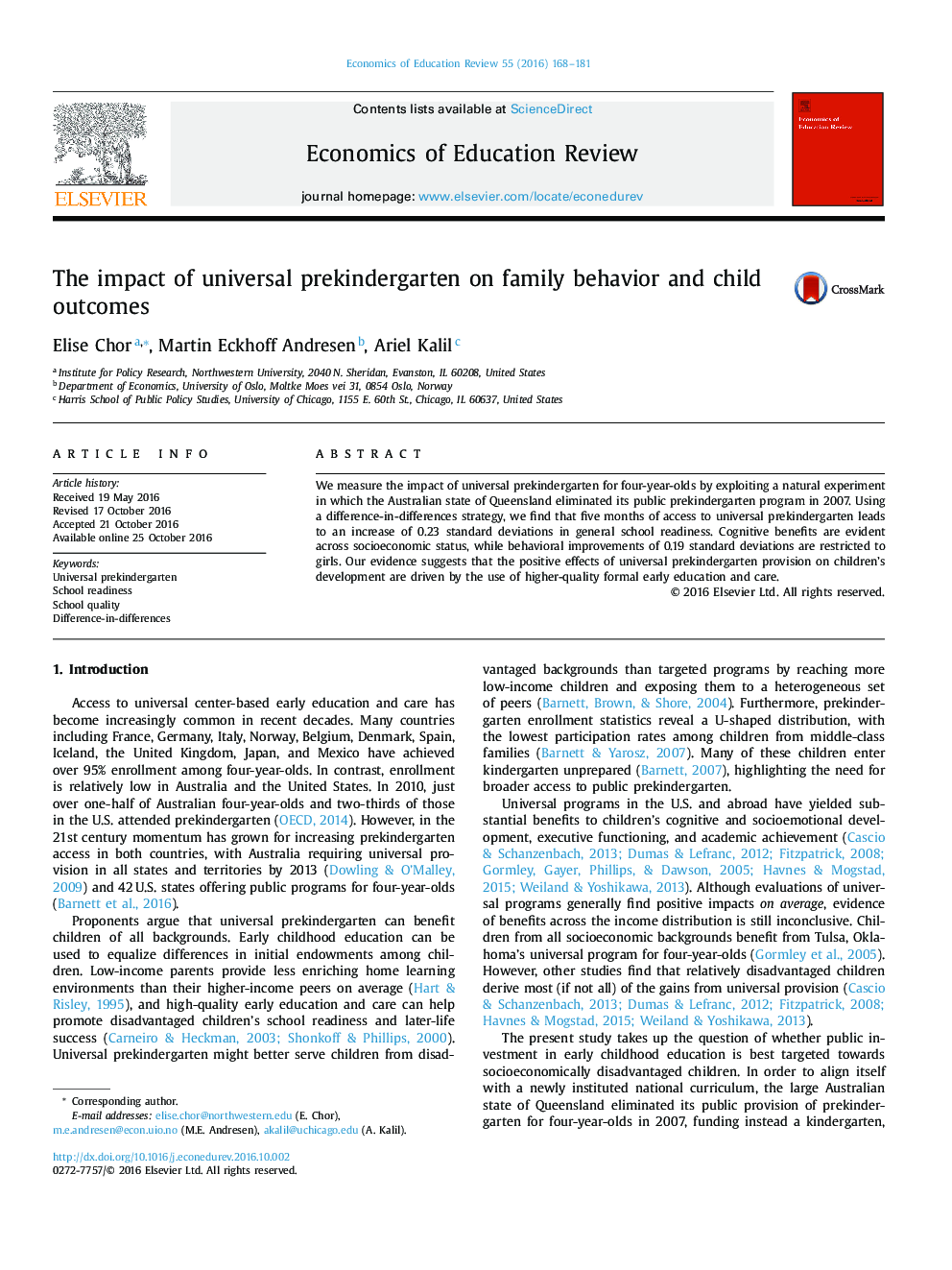| Article ID | Journal | Published Year | Pages | File Type |
|---|---|---|---|---|
| 4938289 | Economics of Education Review | 2016 | 14 Pages |
Abstract
We measure the impact of universal prekindergarten for four-year-olds by exploiting a natural experiment in which the Australian state of Queensland eliminated its public prekindergarten program in 2007. Using a difference-in-differences strategy, we find that five months of access to universal prekindergarten leads to an increase of 0.23 standard deviations in general school readiness. Cognitive benefits are evident across socioeconomic status, while behavioral improvements of 0.19 standard deviations are restricted to girls. Our evidence suggests that the positive effects of universal prekindergarten provision on children's development are driven by the use of higher-quality formal early education and care.
Related Topics
Social Sciences and Humanities
Economics, Econometrics and Finance
Economics and Econometrics
Authors
Elise Chor, Martin Eckhoff Andresen, Ariel Kalil,
